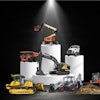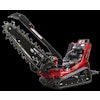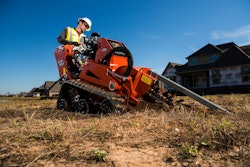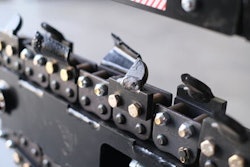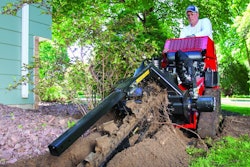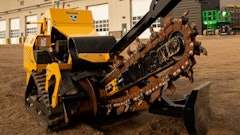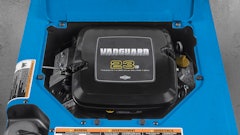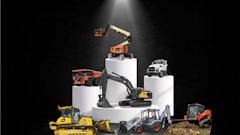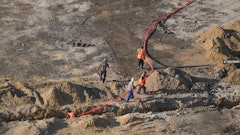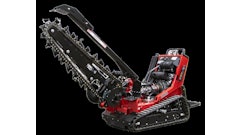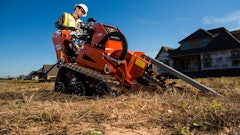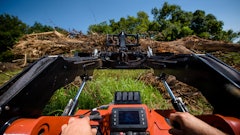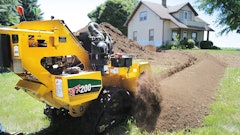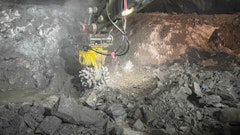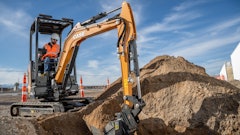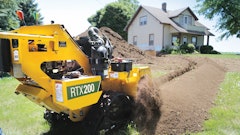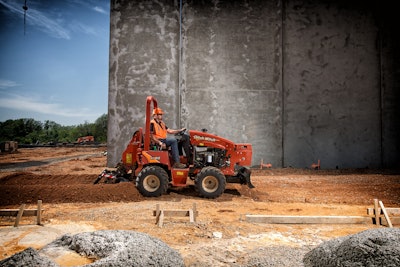
Trenchers are the bread and butter for green industry professionals and utility contractors who want to install products quickly and efficiently, and many contractors depend heavily on rental yards to help them bring these machines to their jobsites.
As a result, it is important for rental yards to make sure their trenchers are available when they’re in stock. That is all heavily dependent on rental companies practicing proper machine maintenance. Routine maintenance can help proactively identify a problem, extend the life of trencher equipment in the rental yard and reduce the risk of machine failure on a customer’s jobsite.
Performing these maintenance items can maximize the uptime, readiness and return on investment of trenchers.
1. Perform routine inspections
To ensure a trencher fleet is ready to meet customer demand, it’s important to perform machine inspections as soon as the equipment is returned after a rental. Equipment inspection helps rental companies stay ahead of wear and timely address needed maintenance. An inspection takes just a few minutes and soon becomes a regular habit.
At a minimum, inspect the digging teeth and the chain after each rental. Also, be sure to check the trencher’s engine oil and coolant levels on a regular basis, adding the correct fluids as necessary. Rental companies can also change fluids and filters at prescribed intervals (more frequently when operating in adverse or dusty conditions), lubricate all service points and keep hydraulic fluid topped off.
Determining best practices for inspections can be found in the trencher operator’s manual. The operator’s manual contains valuable equipment information, such as the maintenance schedule for the different parts of the machine. Following the operator’s manual can help ensure inspections are effectively reducing unexpected and unwanted downtime.
2. Keep the track system in tiptop shape
Renters expect their trenchers to easily navigate any jobsite. This is best accomplished by making sure that the track system is in top shape, meaning that it is clean and free of mud, rocks and other debris before it leaves the rental yard. All debris must be purged from the bearing areas to prevent intrusion to the roller bearings. This care is even more important in cold regions where the contaminants could freeze and cause damage to rollers, bearings and sprockets in subfreezing temperatures. Contaminants can also result in premature wear on embeds of the rubber track and the drive sprockets.
Keeping the roller bearings lubricated will also improve the productivity of a trencher. This is even more relevant when the jobsite has wet, muddy and cold conditions. Correct fluid levels in the planetary gear boxes must be maintained to prevent premature damage to internal gears.
Additionally, track tension is an important factor in trencher upkeep. Correct track tension must be maintained to lessen the chance of damage to embeds and the track, caused by the track sliding off the idlers and sprocket. As always, the operator’s manual lists the correct fluids, grease and track tension procedures to extend the track drive system life.
3. Don’t overlook the digging system
The best defense against wear is regular inspection of the digging system. Worn teeth, chains and sprockets reduce digging efficiency, which can result in shock loads that damage other parts of the machine such as the engine and transmission. Additionally, when consistently operating with a worn chain link, sprocket teeth can completely wear through roller sleeves, causing damage to the pins that connect them. Additionally, if a chain doesn’t have the correct tension, a renter will lose productivity when the chain slips off the sprocket.
To stay on top of performance, check the teeth after every rental. Teeth can wear prematurely or unevenly, especially on a rental trencher that constantly works in different ground conditions. When this happens, the teeth can put unnecessary stress on the digging chain. Digging teeth should be replaced as soon as they become dull. When replacing teeth, it is important to make sure they conform to the pattern on the digging chain.
Keep in mind that where there are worn teeth, there are often sprockets in need of replacement. When performing trencher maintenance, rental companies should remember that sprockets should never be replaced alone. Also, the digging chain should be changed at the same time. Operating an old chain on new sprockets causes premature sprocket wear. Also, operating a new chain on worn sprockets causes excessive chain wear and can result in chain failure. Once again, information for inspecting and properly maintaining the digging system can be found in the operator’s manual.
Good maintenance
goes a long way
Performing routine inspections and keeping a close eye on the track and digging systems can ensure rental companies’ trenchers are performing as promised on a contractor customer’s jobsite. This will ultimately optimize performance, reduce downtime and improve the bottom line for both rental companies and their customers.


